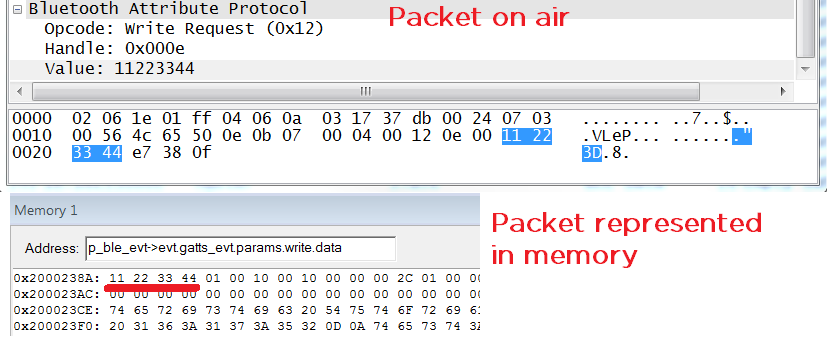This is a simple question: If I have a characteristic with, let's say an int16_t in it and catch the write event in a ble_gatts_evt_write_t structure - is the data field in little or big endian order?
I tried writing to my characteristic with Nordic's Master Control Panel app on iOS and either the app writes it in big endian order or the data array is reversed in the Nordic SDK.
Is that a bug in the MCP app or is the big endian order intentional here in the Nordic SDK?
Generally, Bluetooth GATT seems to use little endian for all characteristics.

